Michael Salter Quotes & Sayings
Enjoy the top 5 famous quotes, sayings and quotations by Michael Salter.
Famous Quotes By Michael Salter
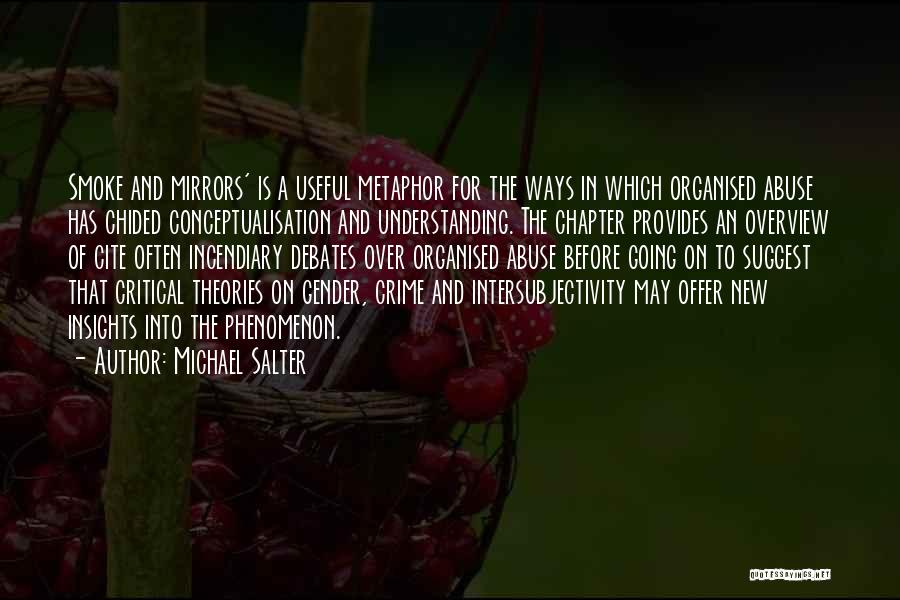
Smoke and mirrors' is a useful metaphor for the ways in which organised abuse has chided conceptualisation and understanding. The chapter provides an overview of cite often incendiary debates over organised abuse before going on to suggest that critical theories on gender, crime and intersubjectivity may offer new insights into the phenomenon. — Michael Salter
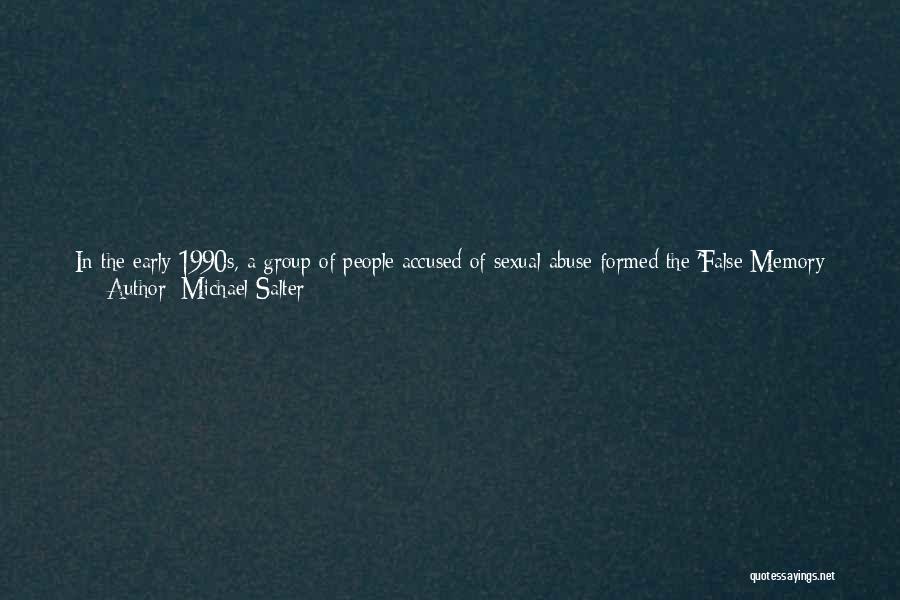
In the early 1990s, a group of people accused of sexual abuse formed the 'False Memory Syndrome Foundation' (FMSF). The FMSF's primary goal was to advocate on behalf of parents accused of child sexual abuse by their adult children, but the Foundation also became an important resource for people accused of sexual abuse by minors. Importantly, the Foundation attracted academics from a range of discliplines whose experise had been contested or challenged by the legitimisation of children's and women's testimony of sexual abuse. — Michael Salter
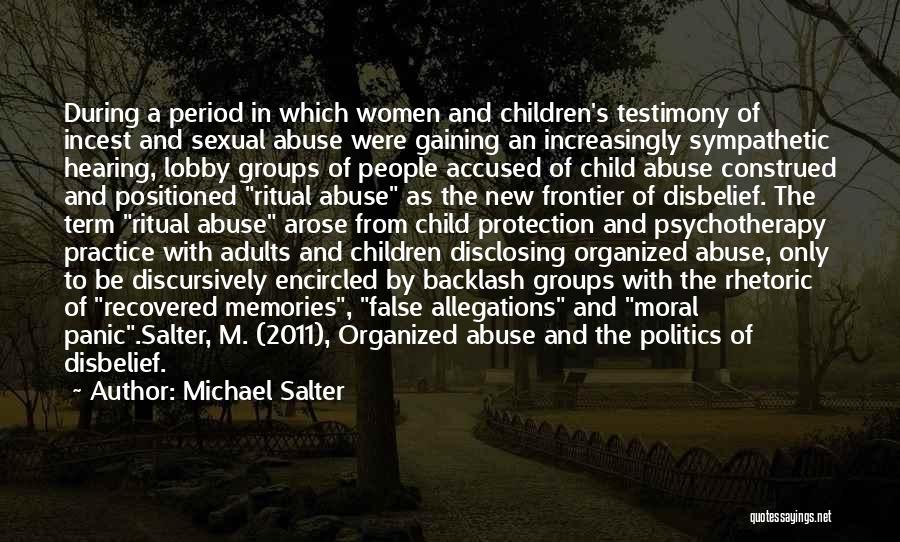
During a period in which women and children's testimony of incest and sexual abuse were gaining an increasingly sympathetic hearing, lobby groups of people accused of child abuse construed and positioned "ritual abuse" as the new frontier of disbelief. The term "ritual abuse" arose from child protection and psychotherapy practice with adults and children disclosing organized abuse, only to be discursively encircled by backlash groups with the rhetoric of "recovered memories", "false allegations" and "moral panic".
Salter, M. (2011), Organized abuse and the politics of disbelief. — Michael Salter
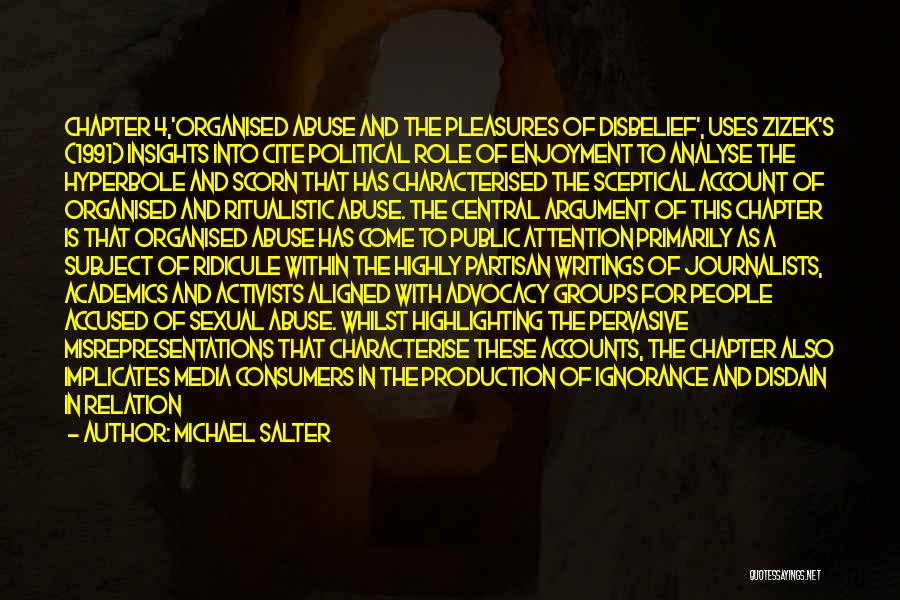
Chapter 4,'Organised abuse and the pleasures of disbelief', uses Zizek's (1991) insights into cite political role of enjoyment to analyse the hyperbole and scorn that has characterised the sceptical account of organised and ritualistic abuse. The central argument of this chapter is that organised abuse has come to public attention primarily as a subject of ridicule within the highly partisan writings of journalists, academics and activists aligned with advocacy groups for people accused of sexual abuse. Whilst highlighting the pervasive misrepresentations that characterise these accounts, the chapter also implicates media consumers in the production of ignorance and disdain in relation to organised abuse and women's and children's accounts of sexual abuse more generally. — Michael Salter
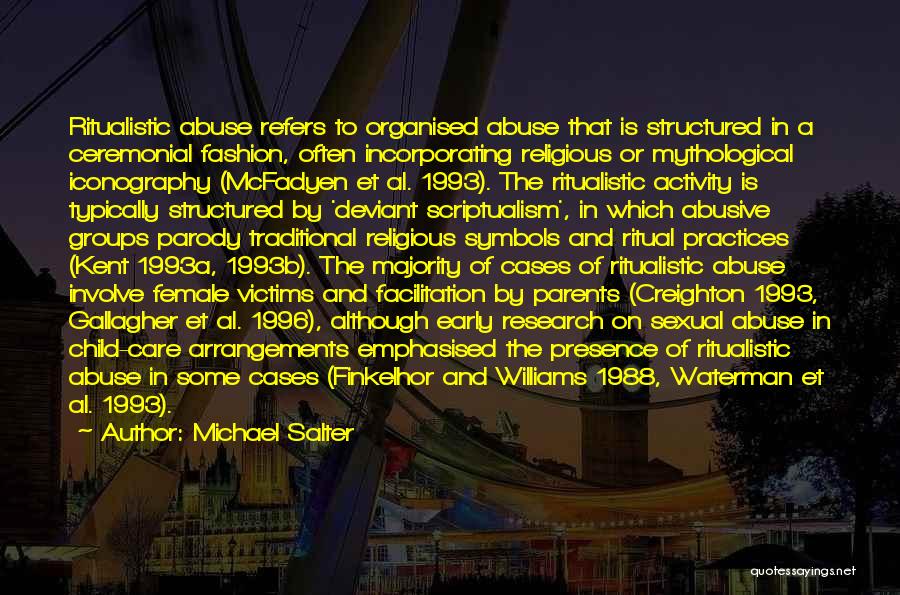
Ritualistic abuse refers to organised abuse that is structured in a ceremonial fashion, often incorporating religious or mythological iconography (McFadyen et al. 1993). The ritualistic activity is typically structured by 'deviant scriptualism', in which abusive groups parody traditional religious symbols and ritual practices (Kent 1993a, 1993b). The majority of cases of ritualistic abuse involve female victims and facilitation by parents (Creighton 1993, Gallagher et al. 1996), although early research on sexual abuse in child-care arrangements emphasised the presence of ritualistic abuse in some cases (Finkelhor and Williams 1988, Waterman et al. 1993). — Michael Salter





